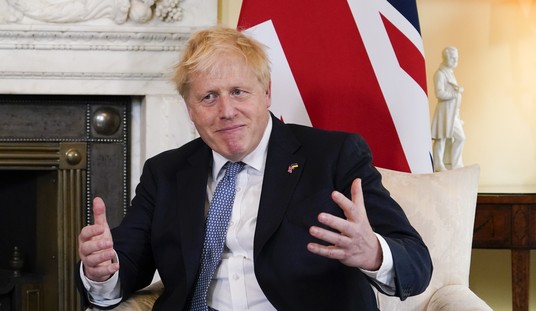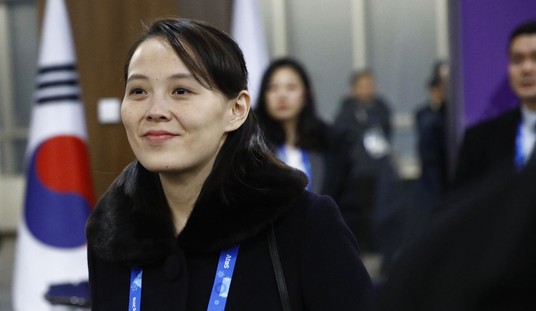Suppose you read in the Washington Post about a democratic politician who was a refugee from persecution by a dictatorship. Would you be surprised to learn that he was in fact a vicious antisemite, a radical Islamist, and—by the way—a wanted war criminal for his collaboration with the Nazis?
In fact, all of the facts about this politician are easily available in the public record. The man in question is Maarouf al-Dawalibi, whose son, Nofal, has now declared himself leader of a Syrian “government in exile.” I don’t want to be unfair to the Washington Post, which in this case merely reports what someone told it and had no reason to research this specific point. Still, this story amply illustrates the daily misrepresentation and apologies for revolutionary Islamism so common in the media, academia, and among Western government officials. It also shows how a naive West is repeatedly duped and how knowledge of Middle East is so shallow among the supposed experts and pundits.
According to the Post:
“[Nofal] al-Dawalibi said his father, Maarouf, was the `last freely elected prime minister’ in Syria, in 1961, but was later jailed and fled to Saudi Arabia two years later, where he became an adviser to the royal family.”
So who was Maarouf? According to official German documents and U.S. Army war crimes’ investigators, he was a Nazi agent stationed in Paris, working for the grand mufti, Amin al-Husaini, and on Berlin’s payroll during World War Two. A secret U.S. intelligence document of June 17, 1945, puts Maarouf al-Dawalibi on the wanted list of war criminals. Somehow he eluded capture.
Back in Syria, a country where a record of Nazi collaboration was a plus, he became a leader of a radical Islamist group that was a rival of the Muslim Brotherhood. He served as prime minister in 1949-1950, speaker of parliament in 1951, defense minister in 1954-1955, and again as prime minister for a few months in 1961-1962.
When the radical nationalist Ba’th Party–which had also been pro-Nazi–came to power in 1963, al-Dawalibi did indeed go into exile. But far from being an advocate for moderation or democracy, he again went to work for his wartime boss, Amin al-Husaini, one of many former Nazi sympathizers working to rebuild the shattered Islamist movement.
The World Muslim Congress, the movement’s main international group at the time, had been founded and led by al-Husaini since 1931. During the war, al-Husaini had used it as one of his main assets as a Nazi collaborator, explicitly offering the group’s services to Hitler. Al-Dawalibi became al-Husaini’s successor as its leader.
Al-Dawalibi also worked for the Saudis. In 1984, as Saudi Arabia’s delegate at a UN seminar on religious tolerance and freedom in Geneva, al-Dawalibi explained:
“If a Jew does not drink every year blood of a non-Jew, then he will be damned for eternity.” He also claimed that “Hitler’s extermination” of the Jews was understandable because, “They call themselves the chosen people and allege they were chosen by God from among all the peoples….”
Again, his son is the actual subject of the Washington Post article. But whitewashing or forgetting about the actual views, words, and behavior of revolutionary Islamists is the pattern today in Western governments, media, and academia.
Not long ago, the son of one of al-Dawalibi’s colleagues in the post-war al-Husaini network, the New York Times allowed Tariq Ramadan without contradiction to assert falsely that the Muslim Brotherhood had always been a moderate, pro-British, pro-democratic group that had nothing to do with the Nazis. Every historian of the period knows Ramadan was lying. Hundreds of thousands of New York Times readers don’t.
Nofal al-Dawalibi, who says he has a master’s degree in engineering from Stanford, divides his time between Paris and Saudi Arabia. He is seeking Western support for his new movement in Syria but he has no real base of support in Syria.
Sure, he makes clear that he doesn’t like the Muslim Brotherhood. This is hardly surprising, though, since while his father did work alongside that group in the al-Husaini network, he belonged to a different Islamist organization in Syria.
The revisionist story of Maarouf al-Dawalibi is not in itself, perhaps, a big deal. But what a fitting symbol for how the Muslim Brotherhood’s anti-Americanism, antisemitism, extremism, genocidal goals, and—yes—history of being a Nazi ally is being shoved down the memory hole at the very moment when this information is most vital to know about!









Join the conversation as a VIP Member